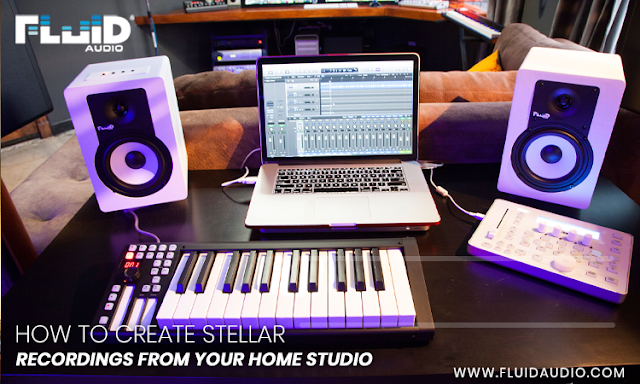How To Create Stellar Recordings From Your Home Studio
For those unfamiliar with recording in a professional studio, or entirely new to the recording process altogether, the thought of doing it yourself from home can be intimidating. With the pandemic restricting almost everything outside one’s domestic environment, musicians have few other choices than to “set up shop” at home and do it themselves.
On the bright side, however, there are already thousands of musicians out there producing professional-grade, “radio-ready” music straight from their home studios every day. But as a rookie, you need to have the right guidance and tools before you can jump in and start engineering and producing your own music.
So read on for some practical tips to become a successful home recording professional.
Get your instruments and equipment ready before sessions
Typically, recording sessions take much longer than expected and there are many things to keep track of when home recording. DIY home recording requires a lot of attention and energy to work with so it’s best to be prepared. Give yourself adequate prep time before each session so you can get set up and test your equipment BEFORE you start. If you’re unfamiliar with basic recording equipment like USB interfaces and studio monitors, make sure you attain a functional understanding of them first before attempting to record from home.
Allocate and treat the space you’ll be recording in
Do not expect your home studio to match the sound, feel, and realism of a professional recording studio right out of the gate. That said, some pretty basic things can help transform a spot in your home into a space in which you’ll be able to produce clean, professional recordings. At the very minimum, you’ll need to ensure the space you’re using to record is quiet. Get rid of any noisy appliances and roommates for a while. Also, try reducing outside traffic noises with the help of heavy blankets or curtains so that your mics don’t pick up auxiliary noises and muddy up your recordings.
Secondly, choose a small, carpeted room in your home preferably with short ceilings and few windows so you don’t have long reverberations or slapback acoustic reflections. Large rooms with high ceilings and many windows result in noisy, muddy recordings.
If you can afford it, get the best studio monitors that your budget can allow and treat your room by covering the walls with fiberglass panels and fabric.
Are you recording yourself or working with someone else?
The home recording experience also depends a lot on whether you’re doing everything yourself or getting help and working as a team. When you’re working alone you face the challenge of multitasking. You’re engineering, performing, producing, editing, etc.— all at the same time.
For these reasons, self-recording tends to take much longer than tracking with someone else. You can also rob yourself of being the best performing artist possible as you’re wearing too many hats at one time. But again it is a matter of personal choice as some musicians prefer the intimacy and DIY aspect of recording alone. Whether you go it alone or record with someone else, plan accordingly.
Pay attention to what works and what doesn’t
Remember that audio engineering is a skill that you cannot develop overnight. People work hard for months, years, and even lifetimes to become skilled music engineers. So it is pretty obvious that every attempt you make will involve things you’re proud of and things you can work on next time. Pay attention to what works and what doesn’t during your first attempts. Don’t get stressed if something isn’t happening the way you want it to. Take some time to figure out why it’s happening, and work towards fixing it the next time. Once you get accustomed to it, you will create a productive home recording practice to meet your needs over the long-term. You can also find many invaluable videos ad tutorials on Youtube and elsewhere for guidance when you need help in specific areas – whether technical or performance-related.
The recording is no cakewalk. It’s rather difficult, tedious work for any musician. To create stellar recordings, you’ll need a lot of practice and the inclination to try take after take until you get it right. If you show the same patience and discipline during the home recording process, even a modest studio or a lack of technical experience will not be able to keep you from recording professional-grade songs from home.



Comments
Post a Comment